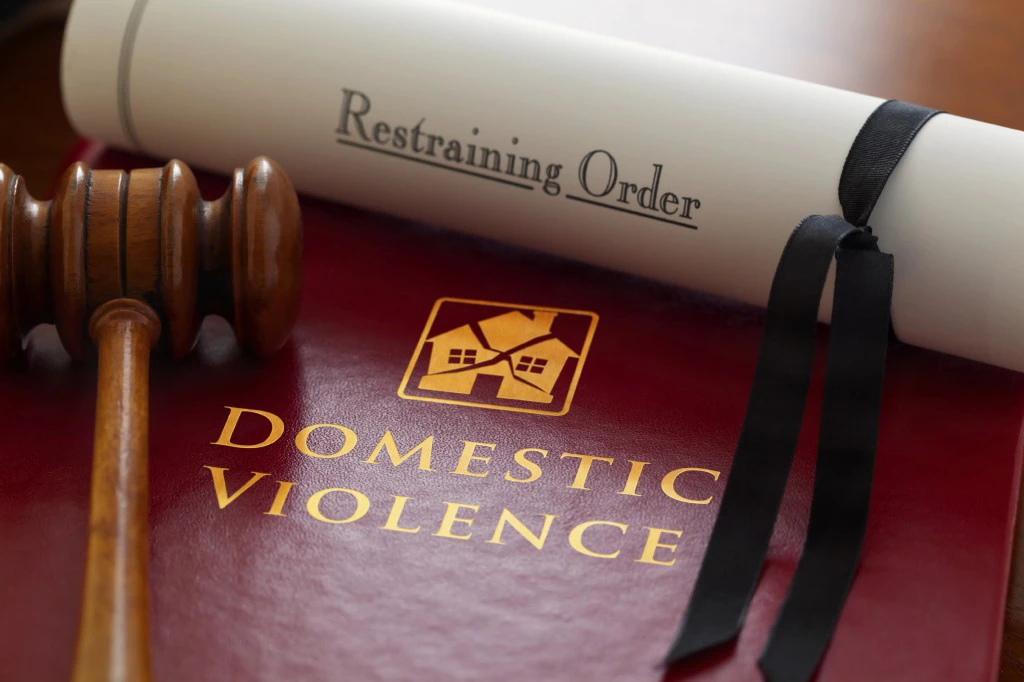Unfortunately, domestic violence exists in many relationships, and often forms the basis of many divorces and separations. Domestic violence affects people in many types of relationships, but the law protects everyone equally, whether the parties are married or unmarried, living together or apart, separated or dating. Domestic violence is not limited to physical abuse, but also sexual, emotional, or verbal abuse.
Examples of Abuse
Emotional: Often these examples of emotional abuse lead to physical abuse.
- Disrespect, attacks on your self-esteem.
- Pressure, manipulation and control.
- Economic control and isolation.
- Harassment, repetition, hounding.
Physical:
- Physical menacing or intimidation.
- Threats.
- Pushing and shoving.
- Sexual pressure or assaults.
Read more about the 8 examples of abuse that leads to domestic violence.
Addressing Domestic Violence in North Carolina
 In an effort to address the problems created by domestic violence, the North Carolina General Assembly has enacted section 50B of the General Statutes.
In an effort to address the problems created by domestic violence, the North Carolina General Assembly has enacted section 50B of the General Statutes.
This section describes the civil remedies available to individuals who are subject to domestic violence. First and foremost, the statutes provide for the removal of any individual who has committed acts of domestic violence from the home to protect the victim.
To initiate an action under section 50B, one must file appropriate paperwork with the Clerk of Court in the county where the alleged event occurred. The Clerk will forward the paperwork to the judge, who will ask you questions about the events that you have alleged. If the judge finds that acts of domestic violence have occurred, he or she will issue a domestic violence protective order and set a return hearing date within 10 days.
The most important part of this proceeding is that it is conducted ex parte, meaning without the presence of the other party who has committed the acts of domestic violence.
Return Dates & Hearing Dates
The return date is set to allow a sheriff to serve the protective order on the other party. On the hearing date, the court, in the presence of both parties, will make a final determination as to whether the domestic violence occurred.
If the court concludes that acts of domestic violence in fact occurred, the court may take any number of actions, including but not limited to a restraining order for a period of one year, temporary custody of any children, and temporary support. Any order entered by the court will be valid for one year unless the court sets a shorter date, or a petition to extend the order is filed and granted.
What Protective Orders Mean
What these protective orders mean for victims of domestic violence is that the offender may not contact the victim in any manner, including emails, telephone calls, voicemails, or indirect contact through third parties. Any such contact will violate the order and subject the party to immediate arrest, and they will be jailed pending a bond.
Often but not always, a criminal assault or other charge is filed in conjunction with a domestic violence action under Chapter 50B. This is a very serious matter, and you should consult your attorney prior to dealing with either your Chapter 50B case or your criminal matter, as the same evidence that may be introduced in one may be used at the other hearing even though the outcomes and consequences are different. The criminal matter is a charge depending on your prior record that may involve jail time and should not be taken lightly.
If you are the victim or the alleged perpetrator of domestic violence, it is important to know what the laws are surrounding the North Carolina Domestic Violence laws. Further, it is important to understand how a domestic violence action may ultimately affect your custody, visitation, alimony or other such rights as the divorce and separation progresses.
Do You Need Representation To Legally Defend Yourself Against Domestic Violence?
Cary domestic violence attorneys have been helping people of all ages overcome domestic violence, through the use of prompt, effective legal action. Domestic violence is not an issue you can wait to address — we are here to help you.
Please contact us below to discuss how we can be there for you both in and outside of the court room.
